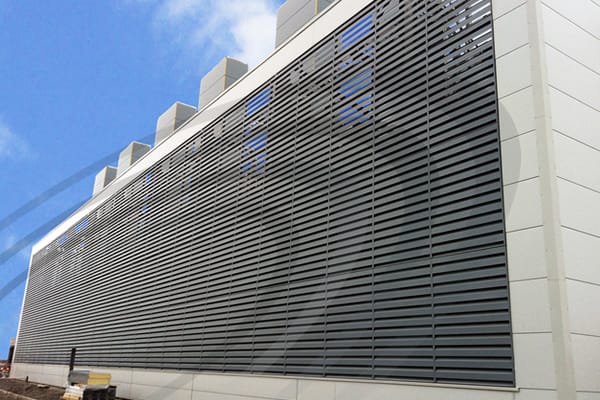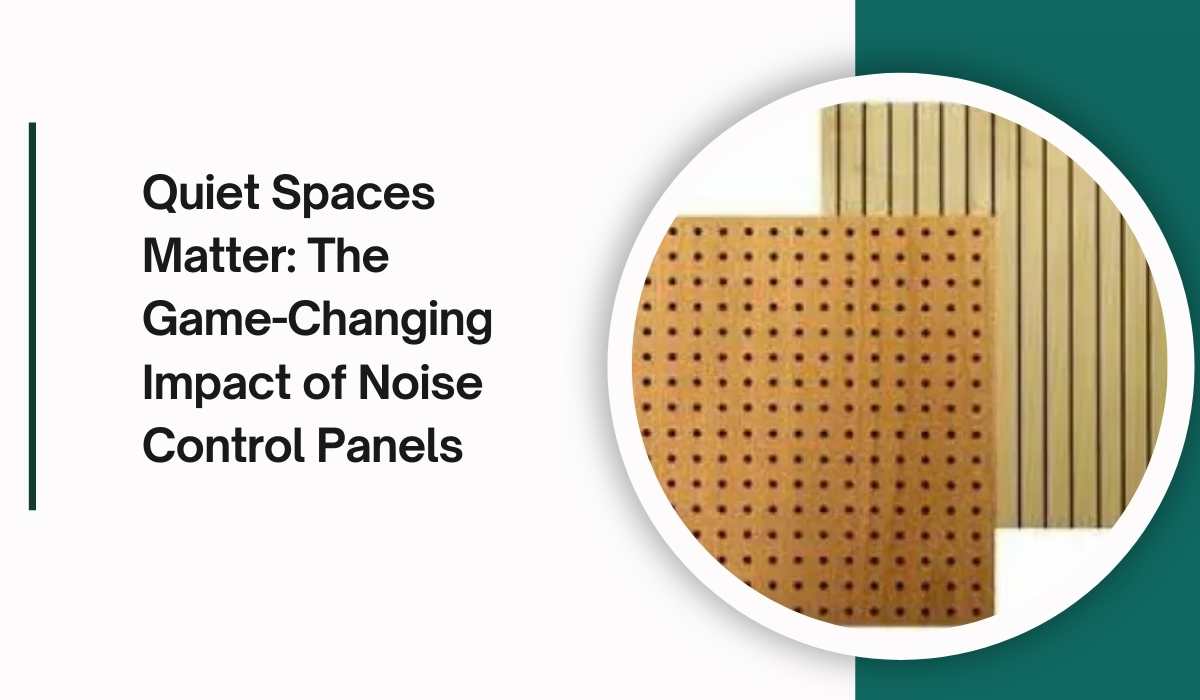Noise is an invisible disruptor in our everyday lives, impacting productivity, health, and overall well-being. Whether it’s the constant buzz of machinery in factories, echoes in open office spaces, or road noise infiltrating our homes, uncontrolled sound can lead to stress and inefficiency. The need for effective noise management is no longer a luxury; it’s a necessity. This is where noise control panels come into play, offering a practical and efficient solution to manage sound levels and improve acoustic comfort.
In this article, we’ll dive into the world of noise control panels, explore their types, benefits, and real-world applications, and understand why they’re becoming indispensable in modern design and construction.
Table of Contents
What Are Noise Control Panels?
Understanding the Basics
Noise control panels, also known as acoustic panels, are specially designed materials engineered to absorb, block, or diffuse sound. They are used to manage noise levels in various environments, ensuring that sound waves are controlled and do not disrupt the desired acoustic balance.
Unlike traditional building materials, these panels are optimized to deal with specific sound frequencies and amplitudes. They play a dual role—reducing noise pollution and enhancing sound quality—making them a versatile choice for many applications. From residential buildings to large industrial complexes, these panels are the unsung heroes of noise management.
Why Noise Control Panels Are Essential
Tackling Common Noise Challenges
- Productivity in Workspaces: Excessive noise in offices can hinder concentration, leading to lower productivity levels among employees.
- Health Concerns: Prolonged exposure to high noise levels can lead to hearing loss, stress, and even cardiovascular issues.
- Communication Barriers: In noisy settings, effective communication becomes a challenge, which can lead to errors and misunderstandings.
- Regulatory Compliance: Many industries must adhere to strict noise regulations. Failure to comply can result in hefty fines or operational shutdowns.
Noise control panels address these challenges by creating an environment where sound is managed effectively, allowing people to function at their best.
Types of Noise Control Panels
Acoustic Panels
Acoustic panels are primarily designed to absorb sound. Made from materials like foam, fabric, or wood, they reduce echo and reverberation, making them ideal for recording studios, theaters, and offices.
Soundproofing Panels
Soundproofing panels focus on blocking external noise from entering a space. These panels are typically denser and are used in areas like conference rooms, apartments near highways, or industrial facilities.
Hybrid Panels
Hybrid panels combine absorption and soundproofing features, making them versatile for spaces that require both functions. They’re popular in multipurpose venues like schools or community halls.
| Type of Panel | Primary Function | Common Applications |
| Acoustic Panels | Absorbs sound waves | Offices, studios, classrooms |
| Soundproofing Panels | Blocks external noise | Apartments, factories |
| Hybrid Panels | Absorbs and blocks noise | Multi-use venues |

How Noise Control Panels Work
Science Behind Noise Reduction
Noise control panels utilize advanced acoustic principles to manage sound:
- Sound Absorption: These panels reduce the intensity of reflected sound waves by absorbing them. Materials like foam and fabric are excellent absorbers.
- Sound Blocking: Denser materials in panels prevent sound from passing through walls, ceilings, or floors.
- Diffusion: Some panels scatter sound waves, evenly distributing them across a space to avoid hotspots or echoes.
By integrating these mechanisms, noise control panels transform noisy environments into quieter, more functional spaces.
Also Read:-https://kyalu.in/the-ultimate-guide-to-noise-control-panels-your-key-to-a-quieter-world/
Key Benefits of Noise Control Panels
1. Improved Acoustic Quality
Whether it’s a classroom, auditorium, or home theater, better sound quality enhances user experience and functionality.
2. Enhanced Comfort and Focus
Quiet spaces promote relaxation and enable people to focus on tasks without distractions.
3. Health Benefits
Reduced noise exposure lowers stress levels, improves sleep, and minimizes the risk of hearing-related issues.
4. Compliance with Noise Regulations
Meeting legal sound standards protects businesses from penalties and ensures a safer environment.
| Benefit | Impact |
| Better sound quality | Clearer communication |
| Increased comfort | Higher productivity |
| Health improvements | Reduced stress |
| Regulatory compliance | Avoid fines |
Applications of Noise Control Panels
Industrial Settings
Factories and workshops are notoriously noisy. Installing soundproofing panels around machinery reduces noise levels, protecting workers from hearing damage and improving overall workplace safety.
Offices
Modern open-plan offices often struggle with noise. Acoustic panels help create designated quiet zones, boosting employee productivity and satisfaction.
Homes
Noise from neighbors or traffic can disrupt home life. Soundproof panels are an excellent solution for bedrooms or living areas, ensuring peace and quiet.
Entertainment Venues
Theaters, concert halls, and recording studios require precise acoustic management. Specialized panels enhance sound clarity while minimizing unwanted echoes.
How to Choose the Right Noise Control Panels
Assess Your Needs
Before purchasing noise control panels, identify the primary noise issues in your space. Are you dealing with echoes, external noise, or both?
Evaluate Material Options
Different materials offer varying levels of absorption and soundproofing. For example:
- Foam panels are lightweight and effective for sound absorption.
- Fiberglass panels offer superior noise reduction but are more expensive.
Consider Installation
Some panels are easier to install than others. Modular panels are user-friendly and ideal for small spaces, while permanent installations are better suited for large, professional setups.
DIY vs. Professional Installation
DIY Installation
If you’re on a budget or working in a small space, DIY installation of noise control panels can be a cost-effective option. Many panels come with adhesive backing or simple mounting systems.
Professional Installation
For larger or more complex projects, hiring professionals ensures optimal performance and durability. Professionals also provide expert advice on panel placement and type selection.
Future Trends in Noise Control Panels
Eco-Friendly Materials
The growing demand for sustainable building solutions has led to the development of panels made from recycled or biodegradable materials.
Smart Noise Control Panels
Advancements in technology are introducing smart panels that adapt to changing sound levels, providing dynamic noise control.
Conclusion: Invest in a Quieter Future
Noise control panels are more than just a tool for reducing sound; they’re an investment in comfort, productivity, and well-being. By understanding your specific needs and exploring the various types and benefits, you can make an informed decision that transforms your space into a haven of tranquility. Don’t let noise disrupt your life—take control with noise control panels and experience the difference today!
For More Insightful Articles Related To This Topic, Feel Free To Visit: caringhandsvet.







Leave A Comment